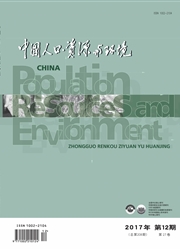

 中文摘要:
中文摘要:
生态补偿作为一种处理环境问题的政策工具集,已引起社会各界的广泛关注。但目前主流的生态补偿科斯框架理论性太强,实践者往往无法模仿其构建的假定运行条件,在实践中面临着诸多挑战。使其难以推广与实施。为了促进生态补偿从理论走向实践。本文立足予国际生态补偿理论研究与实践经验,深入分析了生态补偿科斯概念的理论基础以及积极激励与条件性两个核心标准,系统总结了生态补偿科斯概念在实践中面临的自愿性难以完全满足、条件性难以完全遵守、生态系统服务难以完全界定、效率和公平分离等挑战。提出在实践中应考虑生态补偿执行的复杂性与约束性,研究中应关注生态服务的形成与供给机制、生态补偿融资机制与支付机制、补偿对象空间定位、激励方式选择、效率与公平的权衡、泄露、额外性与不正当激励以及中介机构的影响力等关键问题。应力争将生态补偿理论与实践观点一致起来,在理论研究者与实践者之间建立更包容的对话机制。
 英文摘要:
英文摘要:
Ecological compensation have become an increasing popular approach to deal with environmental problems around the world. Lots of ecological compensation agreements have been arranged in both developing and developed nations. However, because the Coasean theorem of ecological compensation is too theoretical, the practitioners can rarely imitate the conditions under which the Coasean theorem is assumed to function( i. e. clear property rights, perfect information, and competition), the Coasean conception of ecological compensation faces some challenges so that it can not be easily generalized and implemented in practice. In order to facilitate the work of practitioners and to promote the ecological compensation from theory to practice, based on the recent theoretical and empirical developments of ecological compensation, the paper analyzes the core criterion of ecological compensation that is positive incentives and conditionality, and summarizes the challenges that the Coasean conception of ecological compensation has faced in practice. Finally, the paper points out the key issues that ecological complementation should consider, that includes the production and supplying mechanism of ecosystem service, financing mechanism and payment mechanism, the incentives mode choice, spatial targeting of ecological compensation, equity and efficiency, leakout, additionality and improper incentive, and the high leverage of intermediaries. And we should reconcile the ecological compensation theory and practice viewpoint, and create the comprehensive dialogue mechanism between the theoretical researcher and the practitioner.
 同期刊论文项目
同期刊论文项目
 同项目期刊论文
同项目期刊论文
 Relationship analysis between livelihood assets and livelihood strategies: A Heihe River Basin examp
Relationship analysis between livelihood assets and livelihood strategies: A Heihe River Basin examp 期刊信息
期刊信息
